
AlphaLISA Mouse IFN-γ High Performance Detection Kit, 500 Assay Points
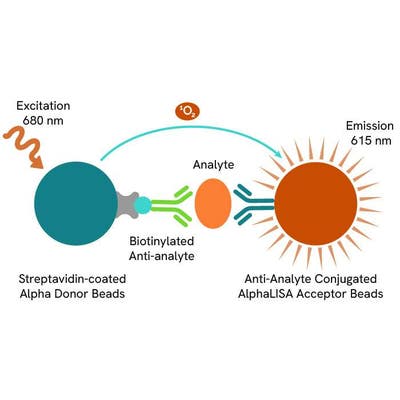
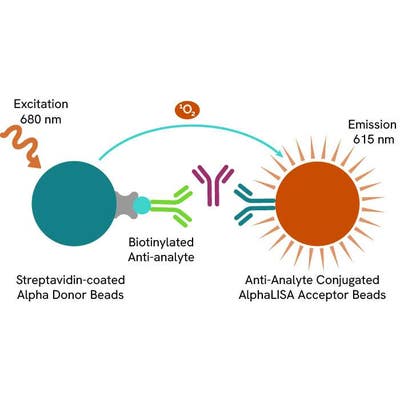
 View All
View All
AlphaLISA Mouse IFN-γ High Performance Detection Kit, 500 Assay Points
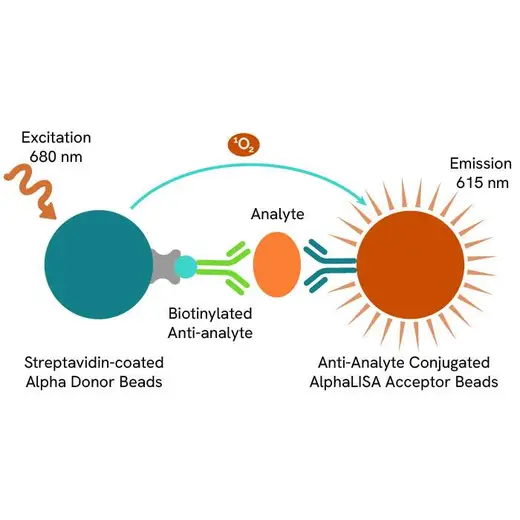
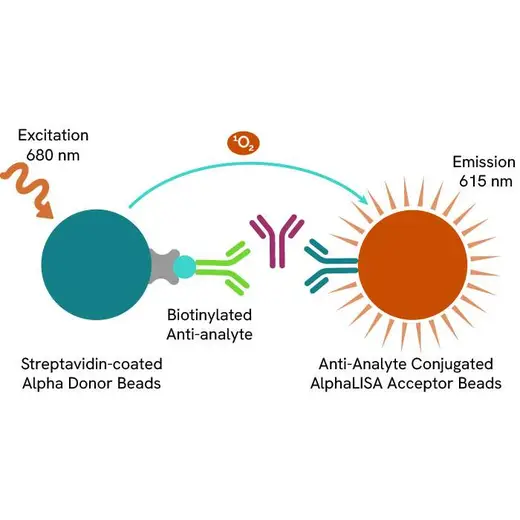



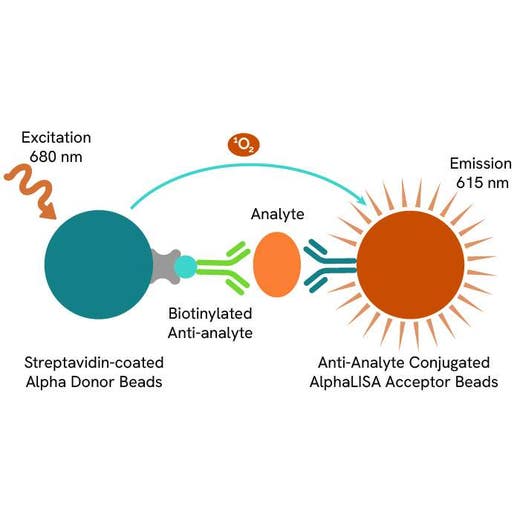
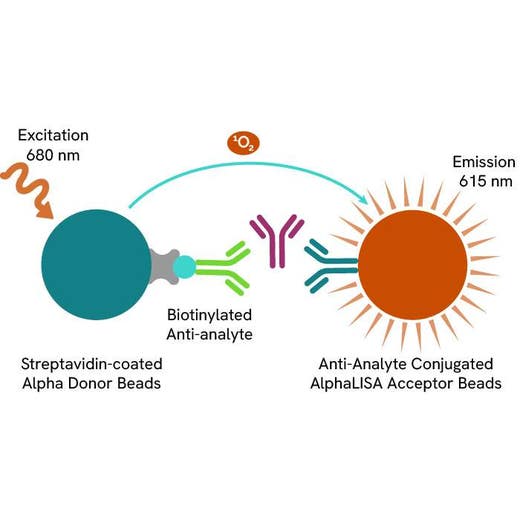



The AlphaLISA™ High Performance (HP) Mouse IFNγ Detection Kit is designed for the quantitative determination of mouse IFNγ in serum, buffered solution, or cell culture medium using a homogeneous (no wash steps, no separation steps) assay.
This kit is the new and improved version of part number AL501.
| Feature | Specification |
|---|---|
| Application | Protein Quantification |
| Dynamic Range | 0.48 - 100,000 pg/mL |
| Limit of Detection | 0.48 pg/mL |
| Limit of Quantification | 1.83 pg/mL |
| Sample Volume | 5 µL |
The AlphaLISA™ High Performance (HP) Mouse IFNγ Detection Kit is designed for the quantitative determination of mouse IFNγ in serum, buffered solution, or cell culture medium using a homogeneous (no wash steps, no separation steps) assay.
This kit is the new and improved version of part number AL501.





AlphaLISA Mouse IFN-γ High Performance Detection Kit, 500 Assay Points





AlphaLISA Mouse IFN-γ High Performance Detection Kit, 500 Assay Points





Product information
Overview
Interferon gamma (IFNγ) is a homodimer glycosylated cytokine that is produced predominantly by natural killer and natural killer T cells. It is critical for innate and adaptive immunity against viral, bacterial, and protozoan infections, and is involved in tumor growth. In domestic animal species, IFNγ is associated with autoinflammatory and autoimmune diseases and inhibits viral replication and bacterial infections. Genetic variation of this cytokine is also associated with the risk of aplastic anemia.
Formats
- Our 100 assay point kit allows you to run 100 wells in 96-well format, using a 100 µL reaction volume (10 µL of sample).
- Our 500 assay point kit allows you to run 500 wells in 96-well or 384-well format, using a 50 µL reaction volume (5 µL of sample).
- Our 5,000 assay point kit allows you to run 5,000 wells in 96-well or 384-well format, using a 50 µL reaction volume (5 µL of sample).
Features
- No-wash steps, no separation steps
- ELISA alternative technology
- Sensitive detection
- Broad sample compatibility
- Small sample volume
- Results in less than 3 hours
- Half the time of an ELISA assay
AlphaLISA technology allows the detection of molecules of interest in a no-wash, highly sensitive, quantitative assay. In an AlphaLISA assay, a biotinylated anti-analyte antibody binds to the Streptavidin-coated Donor beads while another anti-analyte antibody is conjugated to AlphaLISA Acceptor beads. In the presence of the analyte, the beads come into close proximity. The excitation of the Donor beads causes the release of singlet oxygen molecules that triggers a cascade of energy transfer in the Acceptor beads, resulting in a sharp peak of light emission at 615 nm.
Specifications
| Application |
Protein Quantification
|
|---|---|
| Automation Compatible |
Yes
|
| Brand |
AlphaLISA
|
| Detection Modality |
Alpha
|
| Dynamic Range |
0.48 - 100,000 pg/mL
|
| Limit of Detection |
0.48 pg/mL
|
| Limit of Quantification |
1.83 pg/mL
|
| Product Group |
Kit
|
| Sample Volume |
5 µL
|
| Shipping Conditions |
Shipped in Blue Ice
|
| Target |
IFN-γ
|
| Target Class |
Cytokines
|
| Target Species |
Mouse
|
| Technology |
Alpha
|
| Therapeutic Area |
Autoimmunity
Cardiovascular
Immuno-oncology
Inflammation
Oncology
|
| Unit Size |
500 assay points
|
Video gallery

AlphaLISA Mouse IFN-γ High Performance Detection Kit, 500 Assay Points

AlphaLISA Mouse IFN-γ High Performance Detection Kit, 500 Assay Points

Resources
Are you looking for resources, click on the resource type to explore further.
Our R&D scientists were determined to enable your research by developing new and improved versions of our AlphaLISA cytokine...
Cytokines play an essential role in inflammatory processes, leading to their involvement in viral and bacterial infections, as...


How can we help you?
We are here to answer your questions.






























